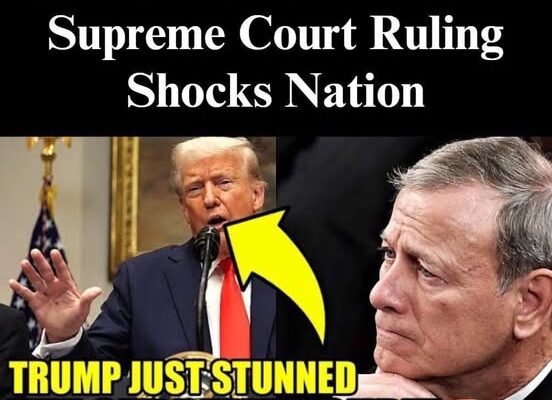Supreme Court’s Landmark Ruling on Trump Sends Shockwaves Across the Nation
In a historic and deeply polarizing decision, the U.S. Supreme Court ruled on July 1, 2024, that former President Donald Trump is partially immune from criminal prosecution for actions taken while in office. The 6-3 ruling in Trump v. United States has rocked the political and legal landscape, sparking intense debate over the limits of presidential power and the future of American democracy.
The Verdict: Defining Presidential Immunity
At the heart of the Court’s decision is a sweeping interpretation of presidential immunity. The majority opinion held that a former president enjoys absolute immunity from prosecution for “core constitutional powers” exercised during official acts. However, it stops short of granting immunity for unofficial actions, leaving room for future legal scrutiny.
The decision effectively shields Trump from several charges related to his attempts to overturn the 2020 election—at least for now—pushing back potential trials until after the 2024 election and reshaping the timeline of legal accountability.
A Divided Nation Reacts
The ruling has drawn sharp and immediate reactions across the political spectrum. Supporters hailed it as a necessary protection of executive authority, arguing that it allows presidents to govern without the looming threat of legal retaliation. Critics, however, warn that it dangerously expands presidential power and threatens the very foundation of the rule of law.
President Joe Biden voiced strong opposition, declaring, “This ruling almost certainly means there are virtually no limits on what a president can do,” highlighting the potential for abuse of power.
In a blistering dissent, Justice Sonia Sotomayor warned that the decision “makes a mockery of the principle that no one is above the law,” raising concerns about the long-term impact on public trust in the judiciary.
Far-Reaching Implications
The immediate consequence of the ruling is the delay of Trump’s criminal trial related to the January 6 Capitol insurrection, giving him the space to campaign for the 2024 presidency without the pressure of looming court dates.
Legal scholars are sounding alarms about the precedent this sets. Former federal judge J. Michael Luttig described the ruling as “irreconcilable with America’s democracy,” warning that it could open the door for presidents to commit grave abuses of power under the guise of official duty.
A Defining Moment for American Law and Politics
The Supreme Court’s decision in Trump v. United States marks a watershed moment in U.S. legal history. As the country heads toward another pivotal election, the ruling underscores the fragile balance between empowering the presidency and holding it accountable.
In the coming months, the implications of this decision will ripple through the courts, the campaign trail, and the public conscience—shaping not just the outcome of 2024, but the very nature of presidential authority for generations to come.

